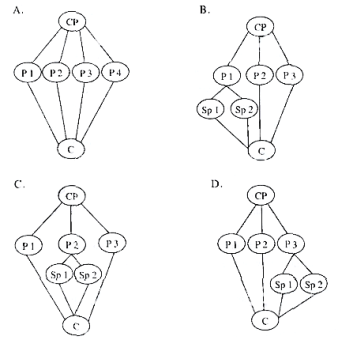题目内容
【题目】假定英语课上老师要求同桌之间交换修改作文,请你修改你同桌的以下作文。
文中共有10处语言错误,每句中最多有两处。错误涉及一个单词的增加、删除或修改。
增加:在缺词处加一个漏字符号(![]() ),并在其下面写出该加的词。
),并在其下面写出该加的词。
删除:把多余的词用斜线(\)划掉。
修改:在错的词下划一横线,并在该词下面写出修改后的词。
注意:1、每处错误及其修改均仅限一词;
2、只允许修改10处,多者(从第11处起)不计分。
Ms Karen, 38 years old, has been helped the old over the past 12 years. She often encourages her daughter—Celest, 10 years old—help the old people as well as. Visiting the seniors who have limited or no family support are what all of them do every weekend. When Celest was the baby, Ms Karen Kong brought her to visit the old so no one looked after her. Whatever, as time went by, it became a meaningful weekly affair and a time to get along for her daughter. She thinks it’s importance to teach children to love the old and hopes the virtue can be passed on.
【答案】
【1】helped— helping / been 去掉
【2】help前加to
【3】去掉 as
【4】are—is
【5】all— both
【6】the—a
【7】so—because
【8】whatever—however
【9】for-- with
【10】加 of importance / importance-- important
【解析】
试题分析:本文主要讲Ms Karen和她女儿Celest长期帮助老人们的故事及她培养女儿这种品质的意义。
【1】helped— helping / been 去掉,考查时态。此处指在过去12年一直帮助老人,应用现在完成进行时(has been helping)或现在完成时(has helped),故答案为helped— helping 或把 been 去掉。
【2】help前加to,考查非谓语动词。encourage sb. to do sth.“鼓励某人做某事”,故答案为help前加to。
【3】去掉 as,考查短语。as well as和as well都可译为“也,还”, as well as用在句中,后有比较对象;as well用于句末。此处为句末要用as well,故答案为去掉 as.
【4】are—is考查主谓一致。Visiting the seniors who have limited or no family support部分who have limited or no family support是定语从句,修饰seniors;句子主语为Visiting the seniors为非谓语动词形式,谓语要用单数,答案为are—is.
【5】all— both考查代词。此处指Ms Karen和她女儿Celest两者都,用both, all用于三者或以上都,故答案为all— both.
【6】the—a考查冠词。baby是可数名词,此处指当Celes是婴儿的时候,不是特指,用a, 故答案为the—a.
【7】so—because考查连词。句意为因为没人照顾孩子,所以Ms Karen带孩子去看老人们。前后句为因果关系,故答案为so—because.
【8】whatever—however考查连词。上句指因为没人照顾孩子,所以Ms Karen带孩子去看老人们。后句指随时间推移成了习惯。两句为转折关系,故答案为whatever—however.
【9】for—with考查固定短语。get along with“和……一起/相处”是固定短语。故答案为for—with.
【10】加 of importance / importance—important,考查句子结构。表示“……是重要的”用it is important或it is of importance结构,故答案为is后加 of importance 或importance—important,

 快乐5加2金卷系列答案
快乐5加2金卷系列答案





